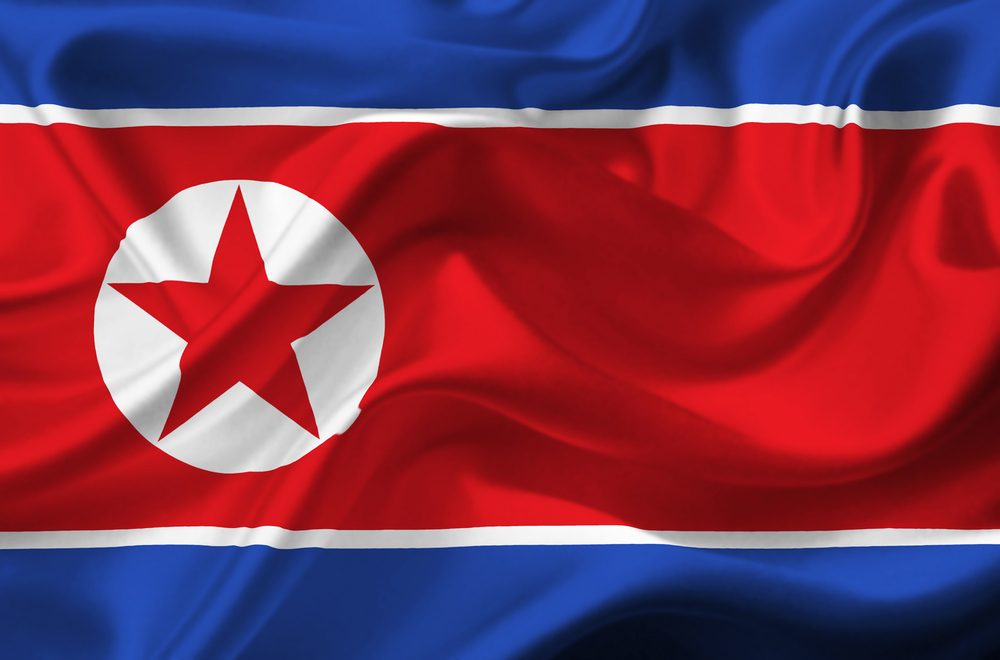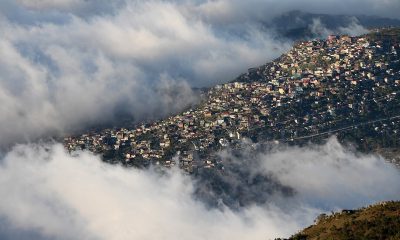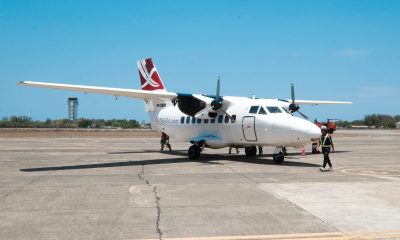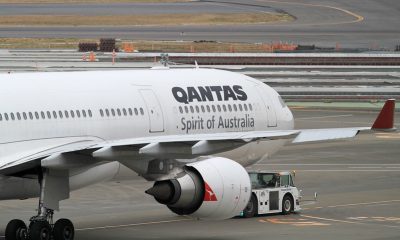Breaking
N. Korea cracking down on a distant threat: Ebola
PYONGYANG, North Korea — North Korea announced Thursday it will quarantine foreigners for 21 days over fears of the spread of the Ebola virus, even though no cases of the disease have been reported in the reclusive country, or anywhere in Asia, and very few foreigners are allowed to enter.
North Korea is always on guard against outside influences, but now that it perceives the deadly disease to be a threat, its anxiety has reached a new level. It has banned tourists, put business groups on hold and is looking even more suspiciously than usual at every foreign face coming across its borders.
Case in point: when a high-level delegation from Japan arrived in Pyongyang this week, two of the first people they met were dressed in full hazmat gear.
The steps also send a message to the North Korean people to be very afraid of the outside world and of outside influences.
An announcement distributed Thursday to diplomatic missions in Pyongyang said that, regardless of country or region of origin, all foreigners will be quarantined under medical observation for 21 days.
Foreigners from affected areas will be quarantined at one set of locations, while those from unaffected areas will be sent to other locations, including hotels. The staff of diplomatic missions and international organizations will be allowed to stay in their residences.
Tourist visits to North Korea were halted last week, so few were likely to still be in the country.
Most tourists do not stay for 21 days. It was unclear if they or others already in North Korea on shorter stays, for example on business, would have to remain for the quarantine period.
North Korea’s frantic response to the Ebola outbreak, including the broad but so far poorly defined ban on foreign tourism, is also surprising because it admits so few foreigners at all. Other than diplomatic and government missions, it has virtually no contact with any of the countries that have been most affected in west Africa, though Africa is one of the places it has tried to develop good relations.
Kim Yong Nam, the head of North Korea’s parliament, is now touring the continent, though not Ebola-impacted areas.
The strict measures shed some light on how the bureaucracy in North Korea tends to work, and on the isolated country’s often-fearful views of the outside world in general.
Last week, after rumors began to circulate among the small foreign community in Pyongyang that draconian measures were in the offing, North Korea’s state media announced that travelers and cargo would be subject to stricter monitoring at airports, seaports and railway border crossings.
Daily reports are being broadcast on television news and during evening programming to increase public awareness of the disease and its symptoms. North Korea’s Korean Central Television aired a news story on Sunday that showed quarantine officials strengthening inspections of people and boats moving in and out of the port city of Nampo.
“Our army, which protects our borders, has a high responsibility to block the disease,” Han Yong Sik, director of the Nampo inspection center, told the network. “We are strengthening quarantine education and thoroughly inspecting boats and planes to ensure that not even a single person carrying the disease enters our country.”
So far, there has been no official statement in North Korea’s English-language media outlining the tourism ban or other restrictions on travel. There was, and remains, little information about what groups are affected, whether travel out of North Korea will be stopped and under what conditions the restrictions would be lifted.
That, of course, has left potential travelers scratching their heads – and businesses bleeding money.
“It was poorly communicated,” said a post Monday on the website of the Choson Exchange, a Singapore-based organization that specializes in promoting business and educational exchange with North Korea. “This didn’t allow stakeholders time to prepare for it. For Choson Exchange, we could be seeing potentially tens of thousands of dollars of losses as we delay training programs, and possibly even more as this drags on.
“For businesspeople, a shutdown will likely hurt their investment plans or transactions.”
Uri Tours, a U.S.-based travel agency that specializes in tours to North Korea, already had informed potential customers that tours have been halted, and that anyone coming to North Korea from certain areas may be quarantined.
The new quarantine announcement – though slim on details – suggests a much broader response. A copy of the document, dated Wednesday and issued by North Korea’s Non-Standing National Emergency Prevention Committee, was obtained by The Associated Press.
More than 13,700 people have been sickened in the Ebola outbreak, and nearly 5,000 of them have died. Nearly all the cases are in Liberia, Sierra Leone and Guinea, though there were 20 in Nigeria, four in the U.S. and one each in Mali, Senegal and Spain.
Uri Tours says it believes the ban on tourists is just temporary – and is holding out hope that they may be able to return in December.
North Korea’s reaction isn’t unprecedented. It closed its borders for several months in 2003 during the scare over SARS.
But that was a much more obvious threat. SARS affected China, and Beijing is where most flights into Pyongyang originate. In the case of Ebola, North Korea’s efforts to defend itself from what appears to be a tiny risk may end up alienating it from foreigners who have been willing to invest here.
“Overall, this episode seems to reflect two things. First, a callous attitude toward stakeholders in the country’s development stemming from poor communications or the lack of will to communicate,” said the Choson Exchange blog. “Second, that North Korea’s `fear of the foreign’ outweighs their interest in whatever benefits foreign investment brings.”
Associated Press writer Kim Tong-hyung in Seoul, South Korea, contributed to this report.






















